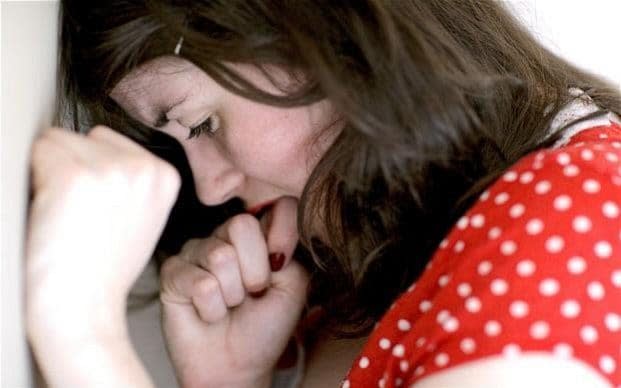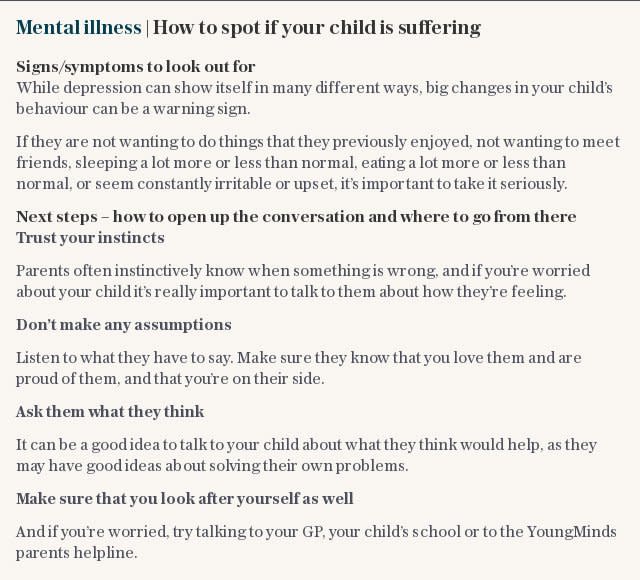The questions that can show your child has depression - and what to do next

It is one of the hardest things for a parent to cope with - to see your child suffering from mental health problems, with no real idea what has gone wrong or how you can help them.
It's something parents of teenage girls all over the country struggle with every day, and in increasing numbers, as their girls attempt to cope with the pressures which seem part and parcel with growing up in 2017.
Mental illness among young girls has, it has been reported this week, reached a crisis point.
A new study - the largest of its kind - found that one in four 14-year-old girls believe they are suffering from depression, with today's teenagers said to be far more likely to experience emotional problems than they would have been 10 years ago.
Their parents, meanwhile, often have little idea their daughter is suffering, mistaking her withdrawal from family life or short temper as a bad bout of teenage angst.

Researchers found "worryingly high rates of depression" in their study, which used data on 10,000 teenagers born in 2000-2001. The 14-year-olds were given a questionnaire used to screen for depression by asking how often they felt miserable, lonely, unloved or hates themselves.
Praveetha Patalay of the University of Liverpool, lead author of the report, said they were seeing a "dramatic jump" in the number of young girls suffering from depression. "Compared to previous generations there seem to be increasing problems, particularly in girls," she said. "The gender gap among adolescents is expected, it's just how wide the gap is that is surprising."
In total, 24 per cent of 14-year-old girls involved in the study reported high levels of depressive symptoms, but when parents were asked about their daughters, just 18 per cent described such signs.
Emma Saddleton, who manages the parents helpline at child mental health charity Young Minds, says the helpline takes more than 13,000 calls per year from parents who are worried about the mental health or wellbeing of a young person.

"Children and young people can be very good at hiding how they feel from their parents, often because they feel ashamed or embarrassed and are not sure about how to start the conversation and communicate how they’re feeling," explains Emma.
"The online world has become increasingly consuming for children and young people and it’s really challenging for parents to keep track of their child’s online world and social media presence, and the pressures that come with this."
Emma finds that by the time parents come to the helpline to ask for advice they are often at their wits end, blaming themselves for not realising sooner how unwell their child was.
"Parents are often very quick to judge themselves when their child is suffering with their mental health. While this is a natural and instinctive reaction, it can often make both the parent and young person feel worse about what they are going through.
"Having someone to talk to and confide in (a partner, friend or colleague) can help off load these feelings, and knowing that it’s okay to ask for professional help is really important. The key is remembering that you’re not failing your child and that you don’t have to do this on your own."
Young Minds have provided the following advice for parents who are concerned about their children's mental health. You can also call the Young Minds Parents Helpline on 0808 802 554.


